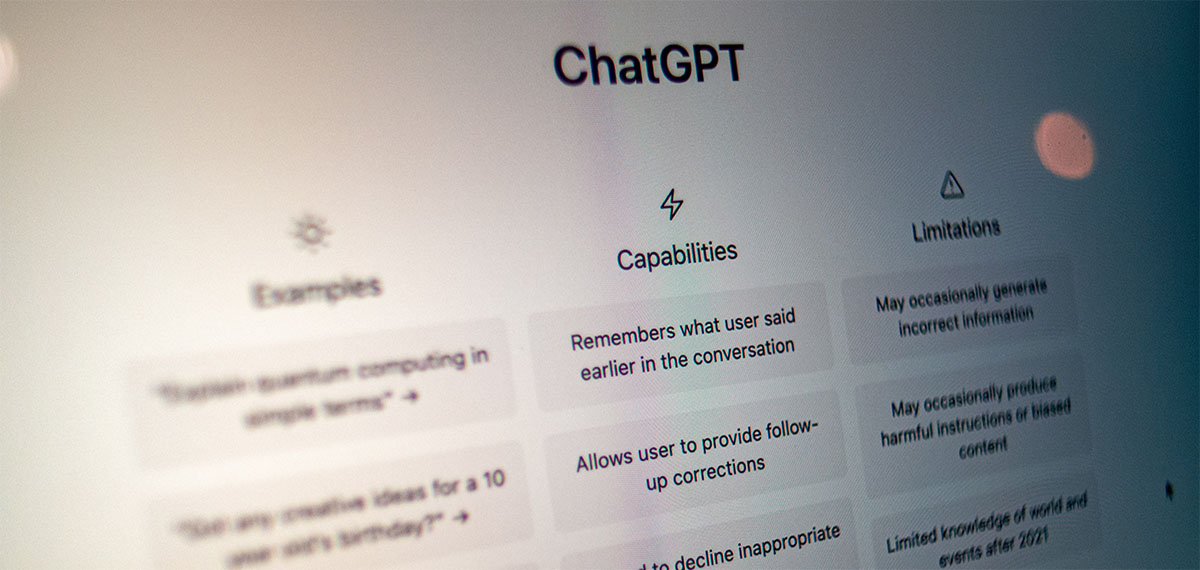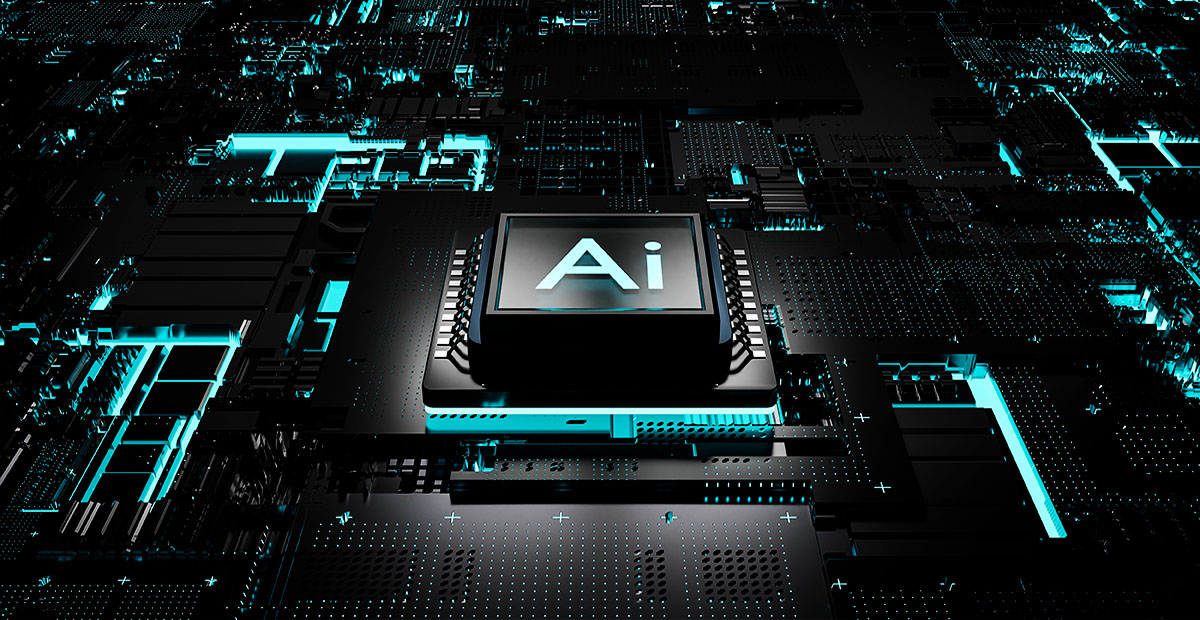Artificial Intelligence (AI) has become an integral part of our lives, shaping various industries and revolutionizing the way we interact with technology. As we look ahead, it is crucial to understand the different AI platforms available, explore training opportunities, and take steps to prepare for the AI revolution. In this article, we will delve into these aspects to empower the common person in embracing the future of AI.
The future of artificial intelligence (AI) is rapidly evolving, with new and innovative tools being developed all the time. One of the most recent and exciting developments is the explosion of large language models (LLMs) such as ChatGPT and Google Bard. These models are capable of generating human-quality text, translating languages, writing different kinds of creative content, and answering your questions in an artificially humanistic way.

What exactly are large language models (LLMs)
A large language model (LLM) is a statistical method that learns to predict the next word in a sequence of words. LLMs are trained on large amounts of text data, and they are used to generate text, translate languages, write different kinds of creative content, and answer your questions in an informative way.
LLMs are trained on massive amounts of text data, typically in the order of billions or even trillions of words. This data is used to train a neural network, which is a type of machine learning algorithm that can learn to predict the next word in a sequence.
LLMs are used for a variety of tasks, including:
- Text generation: LLMs can generate text, such as poems, stories, and code.
- Translation: LLMs can translate languages, such as English to Spanish or French to German.
- Creative writing: LLMs can write different types of creative content, such as scripts, screenplays, and musical pieces.
- Question answering: LLMs can answer your questions in an informative way, even if they are open-ended, challenging, or strange.
LLMs are still under development, but they have the potential to revolutionize many industries. For example, LLMs could be used to create more personalized and engaging customer experiences, develop new educational tools, or generate new creative content.
As LLMs continue to develop, they will become increasingly powerful and sophisticated. This raises several ethical and societal concerns, such as the potential for bias and misuse. It is important to have open and honest conversations about these issues as we move into a world where AI is increasingly ubiquitous.
Despite the challenges, the future of LLMs is bright. With careful planning and responsible development, LLMs have the potential to make our lives better in many ways. We are on the cusp of a new era of technological advancement, and it will be exciting to see what the future holds.

Exploring Various AI Platforms
The exploration of various AI platforms is an exciting and ever-evolving field. There are a wide variety of platforms available, each with its unique features and uses. Some of the most popular AI platforms include:
- TensorFlow: TensorFlow is an open-source platform developed by Google for machine learning and deep learning. It is one of the most popular platforms for research and development, and it is also used by many companies in production.
- PyTorch: PyTorch is another open-source platform for machine learning and deep learning. It is known for its flexibility and ease of use, and it is often used by beginners and researchers.
- Vertex AI: Vertex AI is an end-to-end machine learning platform that helps you build, deploy, and scale machine learning models. It is a unified platform that brings together Google Cloud’s machine learning capabilities, including TensorFlow, Kubeflow, and AutoML. Vertex AI makes it easy to build and deploy machine learning models, regardless of your experience level. It also provides a variety of tools to help you manage your machine-learning models, including monitoring, debugging, and retraining. Vertex AI is a powerful tool that can help you accelerate your machine-learning journey.
- Microsoft Azure AI: Microsoft Azure AI is a cloud-based platform that offers a wide range of AI services, including machine learning, natural language processing, and computer vision. It is a popular choice for businesses that want to deploy AI solutions quickly and easily.
- Amazon Web Services (AWS) AI: AWS AI is another cloud-based platform that offers a wide range of AI services. AWS AI offers a broad portfolio of machine learning (ML) and artificial intelligence (AI) services that helps you build, deploy, and scale ML and AI-powered applications. AWS AI services are fully managed, so you don’t need to worry about the underlying infrastructure. You can focus on building your applications and using AI to solve your business problems. It is a popular choice for businesses that need to scale their AI solutions quickly.
- IBM Watson: Watson is a cognitive computing platform that uses natural language processing and machine learning to analyze large amounts of data and provide insights. Watson can be used for a variety of tasks, including machine learning, question answering, natural language processing, and data analysis. If you are looking for a powerful tool that can help you solve a variety of problems, then IBM Watson is a great option.
- H2O.ai: H2O.ai is a leading provider of open-source and cloud-based machine learning platforms. The company’s flagship product, H2O, is a distributed in-memory machine learning platform that is used by businesses and organizations around the world to build and deploy machine learning models. H2O.ai also offers a variety of other machine learning products and services, including H2O Driverless AI, a fully automated machine learning platform, and H2O Wave, a machine learning platform for business users. H2O.ai is one of the more popular players in the AI space for those in the know.
Each of these platforms has its strengths and weaknesses, so it is important to choose the right platform for your specific needs. Once you have chosen a platform, you can start exploring its features and uses. This list is by no means all-inclusive, platforms are popping up daily. While all this may seem a bit overwhelming, there is a wealth of resources available online to help you get started, including tutorials, documentation, and forums.
As you explore the various AI platforms, you will likely find that some are better suited to your specific needs than others. It is important to experiment and find the platform that works best for you. With a little effort, you can start using AI to solve your problems, achieve your goals, and create something great.
Training Opportunities in AI
To prepare for the AI revolution, acquiring relevant skills and knowledge is vital. Artificial intelligence (AI) is a rapidly growing field with a wide range of applications. As a result, there is a high demand for skilled AI professionals. If you are interested in a career in AI, there are many training opportunities available.
One option is to pursue a degree in computer science or a related field. This will give you the foundation in mathematics, programming, and data science that you need to succeed in AI. Another option is to take online courses or boot camps. These programs can provide you with the skills you need to get started in AI without having to commit to a full-time degree program.
Once you have the necessary skills, you can start looking for jobs in AI. Many companies are hiring AI professionals, including tech giants like Google and Facebook, as well as startups and small businesses. You can also find AI jobs in a variety of industries, including healthcare, finance, and retail.
The AI space is a dynamic and exciting field with a lot of growth potential. If you are looking for a career that is challenging and rewarding, then AI may be the right choice for you.
Here are some popular avenues for training in the AI space:
a) Online Courses and MOOCs: Platforms like Coursera, edX, Elements of AI (free from The University of Helsinki), and Udacity offer a variety of AI courses, covering topics from introductory concepts to advanced algorithms. These courses are usually self-paced, allowing individuals to learn at their own pace and convenience.
b) AI Certifications: Industry-recognized certifications, such as those offered by Google, Microsoft, and IBM, validate one’s expertise in AI technologies. These certifications demonstrate competence in using specific AI platforms and tools.
c) AI Bootcamps: Intensive bootcamp programs provide immersive, hands-on training in AI. These programs often have a shorter duration and focus on practical skills development, making them ideal for individuals looking for a more intensive learning experience.
d) Academic Degree Programs: Universities and educational institutions offer specialized degrees and programs in AI and related fields. Pursuing a degree in computer science, data science, or AI can provide a comprehensive understanding of AI principles and applications.

Getting Prepared for the AI Revolution
Getting prepared for the AI revolution involves a combination of technical and non-technical steps. Here are some essential actions to take:
a) Gain Fundamental Knowledge: Start by developing a solid understanding of AI concepts, including machine learning, neural networks, and data analysis. This foundation will enable you to grasp advanced AI topics more effectively.
b) Sharpen Programming Skills: Familiarize yourself with programming languages commonly used in AI, such as Python and R. These languages provide robust libraries and frameworks for AI development.
c) Practice Real-World Projects: Apply your knowledge by working on AI projects. Platforms like Kaggle and GitHub offer datasets and code repositories to explore and collaborate on real-world problems, honing your skills and building a portfolio.
d) Embrace Lifelong Learning: Stay updated with the latest advancements in AI through research papers, industry publications, and AI-focused communities. Attend conferences, webinars, and meetups to network with experts and gain insights into emerging trends.
What is in Store for the Future of AI
Artificial intelligence (AI) is rapidly changing the world around us. From self-driving cars to virtual assistants, AI is being used in a variety of ways to make our lives easier and more efficient.
In the future, AI is expected to have an even greater impact on our lives. It is predicted that AI will be used to automate many jobs, improve healthcare, and even create new forms of art and entertainment.
However, there are also concerns about the potential negative impacts of AI. Some people worry that AI could lead to job losses, increased inequality, and even a loss of control over our lives (see trailer link below).
For a unique take on the future of AI check out this trailer for the upcoming WaltDisneyCo movie “The Creator” featuring John David Washington…Looks Interesting!
It is important to remember that AI is a tool. Like any tool, it can be used for good or for bad. It is up to us to ensure that AI is used for the benefit of humanity.
Here are some of the ways that AI is expected to change our lives in the not-so-distant future:
- Autonomous vehicles: Self-driving cars are already being tested on roads around the world. In the future, autonomous vehicles will likely become the norm. This could lead to a reduction in traffic accidents and improve air quality.
- Virtual assistants: Virtual assistants like Amazon Alexa and Google Assistant are becoming increasingly popular. These assistants can be used to control smart home devices, play music, and answer questions. In the future, virtual assistants are expected to become even more sophisticated and helpful.
- Healthcare: AI is already being used in healthcare to diagnose diseases, develop new treatments, and provide personalized care. In the future, AI is expected to play an even greater role in healthcare. For example, AI could be used to develop new drugs and treatments or to provide remote patient monitoring.
- Education: AI is already being used in education to personalize learning, provide feedback, and grade assignments. In the future, AI is expected to play an even greater role in education. For example, AI could be used to create personalized learning plans for each student or to provide real-time feedback on student work.
- Art and entertainment: AI is already being used to create new forms of art and entertainment. For example, AI can be used to generate music, write poetry, and create visual art. In the future, AI is expected to play an even greater role in art and entertainment. For example, AI could be used to create new forms of interactive entertainment or to generate personalized content for each user.
These are just a few of the ways that AI is expected to change our lives in the future. It is an exciting time to be alive, and it will be interesting to see how AI shapes the world in the years to come.
What are the Best Steps for the Average Person to take to Get Prepared for the AI Revolution?
The AI revolution is not just coming, it’s here, and it is important to be prepared. Here are a few tips for the common person to get prepared for the AI revolution:
- Stay informed: The best way to prepare for the AI revolution is to stay informed about the latest developments in AI. Read articles, watch videos, and attend events to learn more about AI.
- Develop new skills: AI is changing the job market, so it is important to develop new skills that will be in demand in the future. Consider taking online courses, attending workshops, or getting a degree in fields related to AI.
- Stay up-to-date on the latest AI developments. There are many resources available to help you stay informed, such as industry publications, online blogs, and conferences.
- Get involved in the AI community. There are several online and offline communities where you can connect with other AI professionals and learn from each other.
- Be open to change: The AI revolution will bring about a lot of change, so it is important to be open to change. Be willing to learn new things and adapt to new ways of doing things.
- Be positive: The AI revolution has the potential to make our lives better in many ways. Be positive about the future and look forward to the many benefits that AI has to offer.
The AI revolution is an exciting time, and it is important to be prepared for it. By following these tips, you can be sure that you are ready for the future.
Conclusion
The future of artificial intelligence (AI) is rapidly evolving, with new and innovative tools being developed all the time. One of the most recent and exciting developments is the explosion of large language models (LLMs) such as ChatGPT and Google Bard. These models have placed the possibilities, and reality of AI front and center for the masses.
Despite the novelty and challenges presented by artificial intelligence, the future of this technology is bright. With careful planning and responsible development, AI has the potential to make our lives better in many ways. We are on the cusp of a new era of technological advancement, and it will be exciting to see what the future holds. By taking some of the steps mentioned in this post, you can help ensure that you are ready for the AI revolution and that you take advantage of the opportunities it presents.
The future of artificial intelligence holds immense potential and opportunities for individuals from all walks of life. By exploring AI platforms, engaging in training opportunities, and following a systematic approach to preparation, anyone can be well-prepared for the AI revolution. My advice is to embrace the future of AI and be a part of the transformative impact it will have on society.



